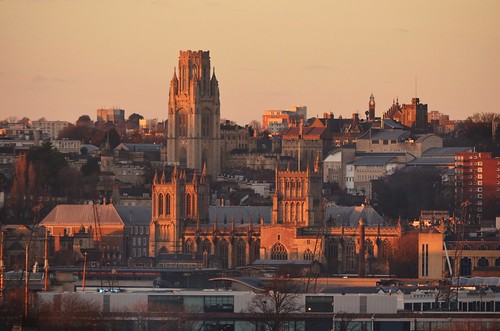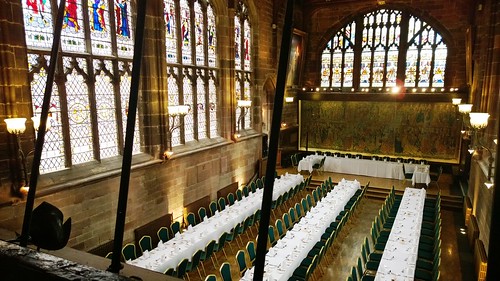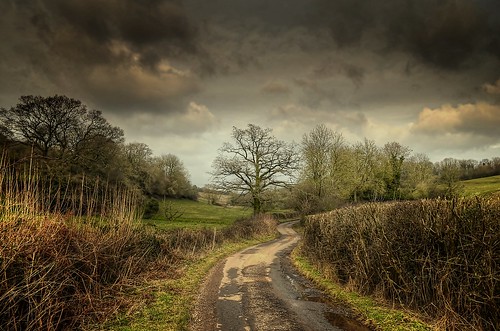'Touring' was the normal response of Elizabethan playing companies whenever London's theatres were closed. It involved travelling the country from town to town, performing in town halls, large private homes, inns and other venues. Lord Strange's Men would have been familiar with touring, even if they may have undertaken it under duress, preferring the comfort and reliability of their permanent base in the city.
Tracing the 1592 tour of Lord Strange's Men is difficult, because the records are sparse and vague. We know a few of the towns they visited, but the exact dates of the visits are hard to pin down. Nonetheless, thanks to the archival research of the the Records of Early English Drama project, we can reconstruct the approximate journey they took. The following description is indebted to that of Sally-Beth MacLean and Lawrence Manley in their book Lord Strange's Men and their Plays, and to the very useful Patrons and Patronage website.
We don't know which plays the company would have performed, but MacLean and Manley note that the surviving texts of Orlando Furioso and A Knack to Know a Knave require smaller casts than the others and appear to have been shortened, as if they have been adapted to the leaner resources of a tour.
Kent (June-July)
Throughout June and and July the company seems to have toured Kent. They began in Rye on the 24th June, and records survive of their visits to Canterbury, Faversham, Maidstone and Folkestone.
 |
| Canterbury Court Hall in 1910 |
Bristol (August)
In August, the company seems to have headed south-west, leaving no traces in the records until they arrived at Bristol in early August, perhaps to catch the end of the St. James Day Fair. They may have performed at a number of venues in this large port city.

The Midlands (September to November)
 |
| The streets around St Mary's Guildhall in Coventry. |
In Coventry, you can see the only surviving venue of the 1592 tour. This might come as a surprise, since the historic centre of Coventry was famously destroyed by bombing in the Second World War and replaced with a concrete jungle. However, the beautiful St Mary's Guildhall was miraculously preserved. The area surrounding it evokes the medieval streets rather well, and the interior is spectacular. Interestingly enough, the hall is dominated by a giant stained-glass window with an image of King Henry VI at is centre; it would have been amazing to perform Harry VI beneath it.

On the road
There is something romantic about the life of the travelling player - what could be more adventurous than to travel the country with a famous and talented cast, thrilling the locals with the wonderful new plays of Elizabethan London? People outside London had few opportunities to see this kind of theatre, so instead of the jaded audiences of the Rose, rolling their eyes at yet another performance of Muly Molocco, we can imagine the provincial audiences being genuinely excited, appreciative and hospitable.
But still, touring had its drawbacks. Although the money was good, and the players were often provided with comfortable lodgings, we can still imagine that bad weather, muddy roads and annoying colleagues could make for an irksome experience. MacLean and Manley note that the company never strayed further than a few days' ride from London, as if they were always hoping to receive news that they could return, and were perhaps longing for the more predictable world of the permanent London theatres.
But they won't be back in London for a long time, so let's leave them on the road and pick up their story on 27th of December...

FURTHER READING
- Sally-Beth MacLean and Lawrence Manley, Lord Strange's Men and their Plays (Yale University Press, 2014), 248-58, 271-8, 342
No comments:
Post a Comment